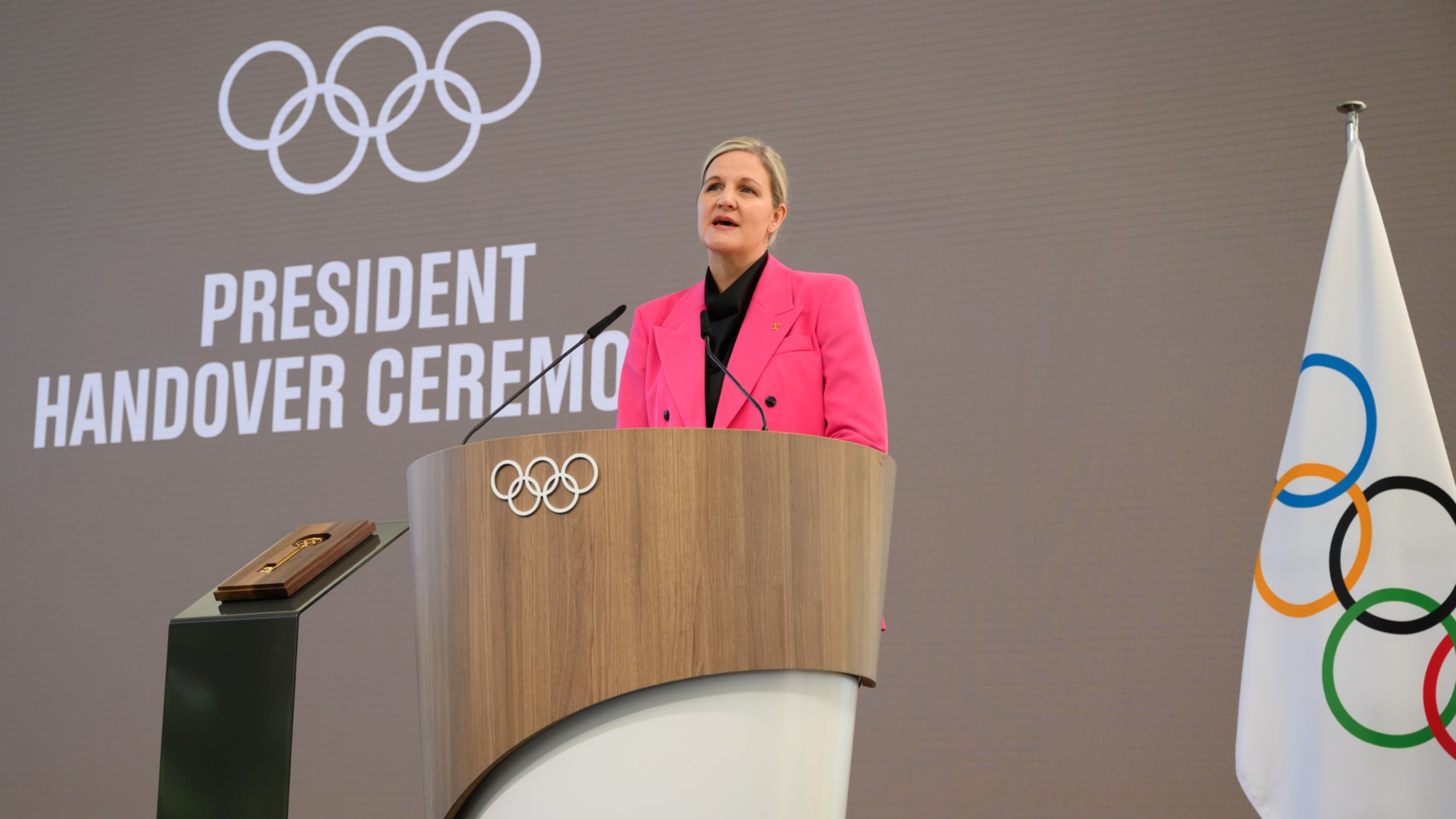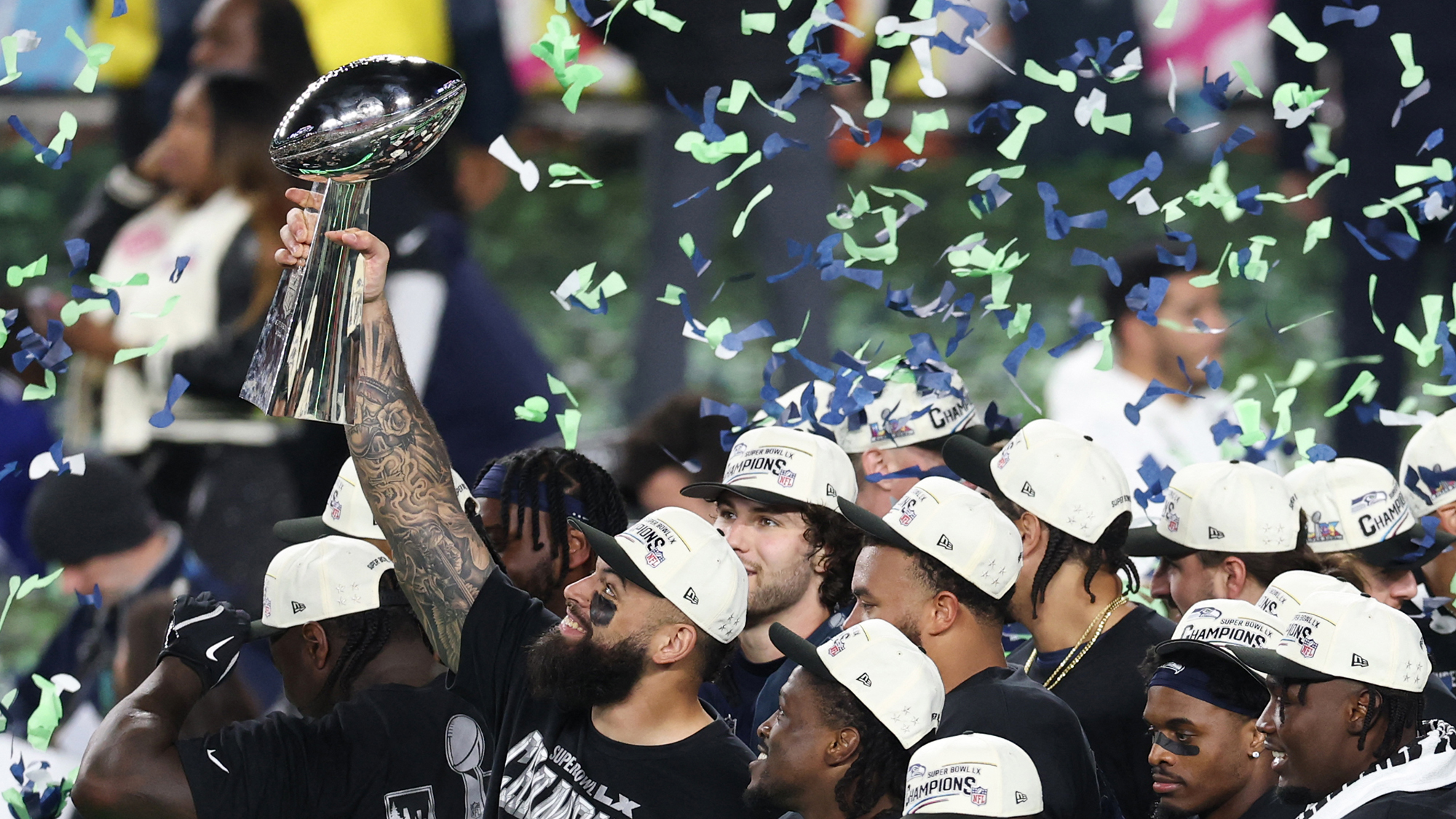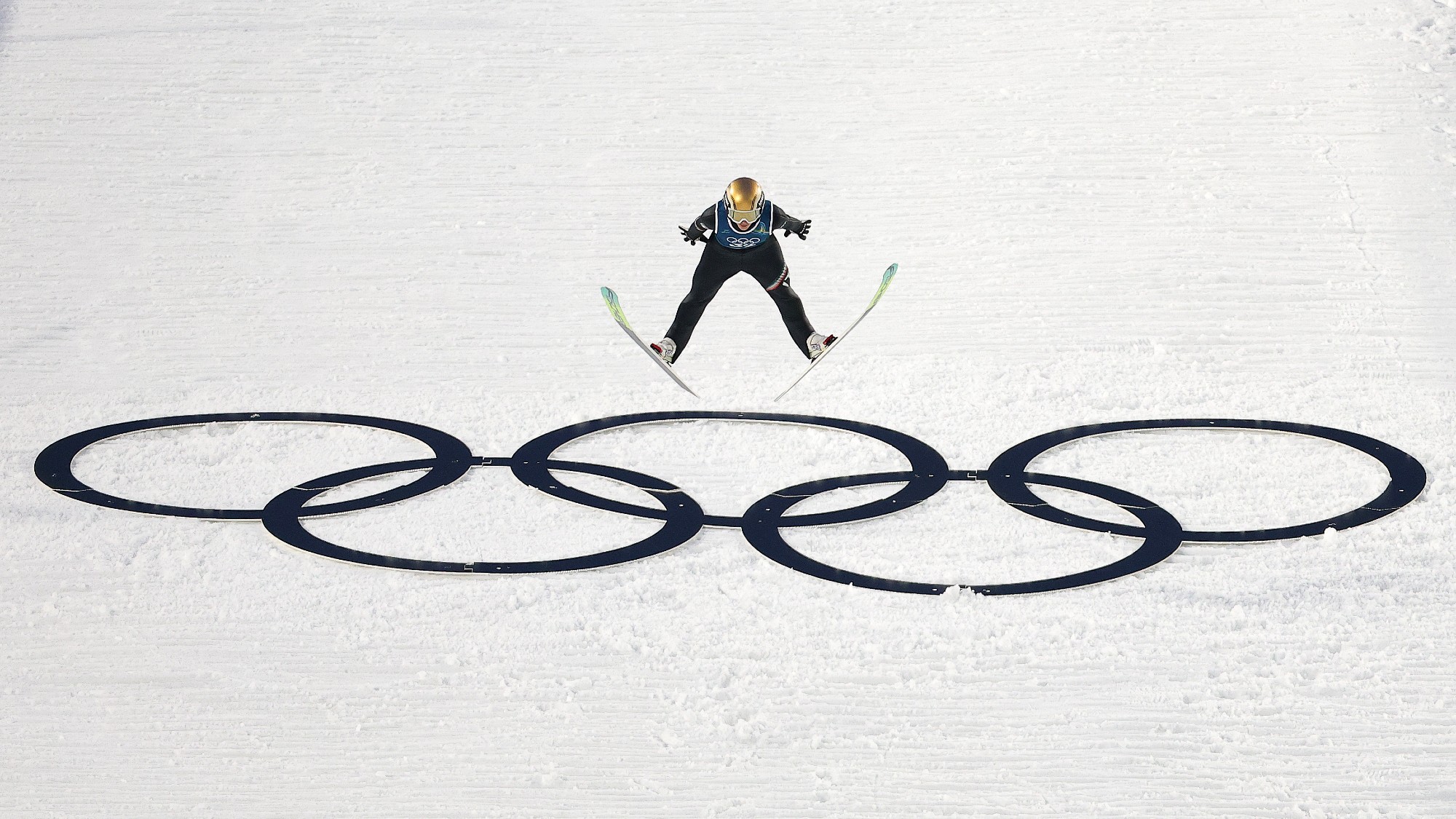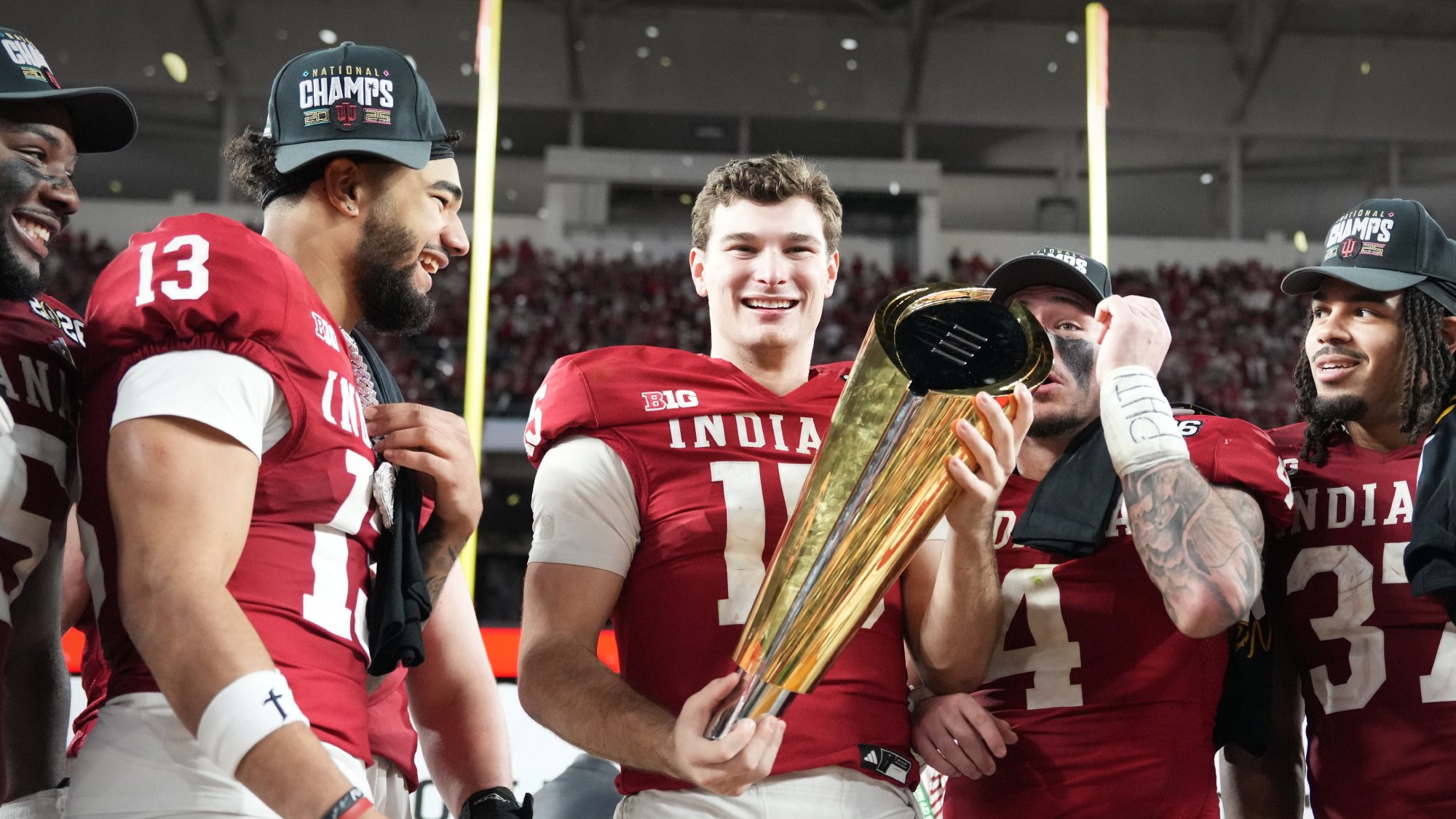Kirsty Coventry: the former Olympian and first woman to lead the IOC
Coventry, a former competitive swimmer, won two Olympic gold medals


A free daily email with the biggest news stories of the day – and the best features from TheWeek.com
You are now subscribed
Your newsletter sign-up was successful
Kirsty Coventry broke several barriers when she became the president of the International Olympic Committee on Monday, as she is both the first woman and first African person to hold the position. Coventry's election to run the IOC shouldn't come as much of a surprise given her long history in Olympic athletics as a former competitive swimmer. But she will also be taking over an IOC with several looming questions, which could make her tenure as president a crucial one.
Coventry's career
Coventry, 41, was born in Harare, Zimbabwe, and learned to swim at a young age. After high school, she accepted a scholarship to swim for Auburn University in Alabama and continued honing her skills in the water, according to the South African swim history database.
The athlete went on to compete in swimming events at five Olympics, winning two gold medals, four silver medals and one bronze medal. This makes Coventry the "most decorated Olympian from Africa, having won seven of Zimbabwe's eight Olympic medals to date," said Business Insider Africa. Coventry is also a five-time world record holder, according to her alma mater.
The Week
Escape your echo chamber. Get the facts behind the news, plus analysis from multiple perspectives.

Sign up for The Week's Free Newsletters
From our morning news briefing to a weekly Good News Newsletter, get the best of The Week delivered directly to your inbox.
From our morning news briefing to a weekly Good News Newsletter, get the best of The Week delivered directly to your inbox.
IOC president
As Coventry settles into her new role, she will be "expected to move quickly to shape the organization," said the Sports Business Journal. This includes focusing on commercial evolution and sponsorship deals for the Olympics, as the "media landscape fragments and sponsors seek greater involvement to leverage their assets." Spearheading the next decade of Olympic Games is also a priority, with hosts for the Summer and Winter Games set through 2034.
The most pressing matter will likely involve dealing with the Olympics on the world stage, especially regarding controversial issues. This includes questions over gender roles, as the "first Summer Games under a female presidency will be the first with a majority of athlete quota places for women," said The Associated Press. Coventry "often states the importance of 'Olympic Values,' which include gender parity, inclusion and inspiring young people through sports," which she will likely prioritize during her tenure.
But Coventry has also taken less clear stances on other matters; when "asked whether she thinks trans women should be allowed to compete in women's competitions, she was evasive," said Deutsche Welle. She also "avoided going too far out on a limb on another hot topic before the IOC election: the possibility of Russian and Belarusian athletes competing at the Olympics." Russian athletes have been banned from competing under the Russian flag since 2017, and the Russian Olympic Committee has been suspended since 2023. At "some point in Coventry's presidency, Russia could possibly return fully to the Olympic family," but it is "unclear exactly when," said the AP.
As she gets started on her to-do list, Coventry "may end up being a lot more independent and interesting" than the IOC was expecting, said The Guardian. While the new president is "likely to enjoy a honeymoon period, she knows there are landmines lurking everywhere." Even the "biggest of beasts would struggle to lead a mammoth organization that not only runs the Olympics but is a cheerleader, funder and regulator for much of sport."
A free daily email with the biggest news stories of the day – and the best features from TheWeek.com
But Coventry is up for the challenge. "The way in which I like to lead is with collaboration," she told reporters. "All those people who may look at me and see one thing, kind of excites me. Because I think that they won't see what is coming."
Justin Klawans has worked as a staff writer at The Week since 2022. He began his career covering local news before joining Newsweek as a breaking news reporter, where he wrote about politics, national and global affairs, business, crime, sports, film, television and other news. Justin has also freelanced for outlets including Collider and United Press International.
-
 Health insurance: Premiums soar as ACA subsidies end
Health insurance: Premiums soar as ACA subsidies endFeature 1.4 million people have dropped coverage
-
 Anthropic: AI triggers the ‘SaaSpocalypse’
Anthropic: AI triggers the ‘SaaSpocalypse’Feature A grim reaper for software services?
-
 NIH director Bhattacharya tapped as acting CDC head
NIH director Bhattacharya tapped as acting CDC headSpeed Read Jay Bhattacharya, a critic of the CDC’s Covid-19 response, will now lead the Centers for Disease Control and Prevention
-
 The Olympic timekeepers keeping the Games on track
The Olympic timekeepers keeping the Games on trackUnder the Radar Swiss watchmaking giant Omega has been at the finish line of every Olympic Games for nearly 100 years
-
 Nordic combined: the Winter Olympics sport that bars women
Nordic combined: the Winter Olympics sport that bars womenIn The Spotlight Female athletes excluded from participation in demanding double-discipline events at Milano-Cortina
-
 The price of sporting glory
The price of sporting gloryFeature The Milan-Cortina Winter Olympics kicked off this week. Will Italy regret playing host?
-
 The 9 best steroid-free players who should be in the Baseball Hall of Fame
The 9 best steroid-free players who should be in the Baseball Hall of Famein depth These athletes’ exploits were both real and spectacular
-
 Seahawks trounce Patriots in Super Bowl LX
Seahawks trounce Patriots in Super Bowl LXSpeed Read The Seattle Seahawks won their second Super Bowl against the New England Patriots
-
 What to watch out for at the Winter Olympics
What to watch out for at the Winter OlympicsThe Explainer Family dynasties, Ice agents and unlikely heroes are expected at the tournament
-
 History-making moments of Super Bowl halftime shows past
History-making moments of Super Bowl halftime shows pastin depth From Prince to Gloria Estefan, the shows have been filled with memorable events
-
 Indiana beats Miami for college football title
Indiana beats Miami for college football titleSpeed Read The victory completed Indiana’s unbeaten season
